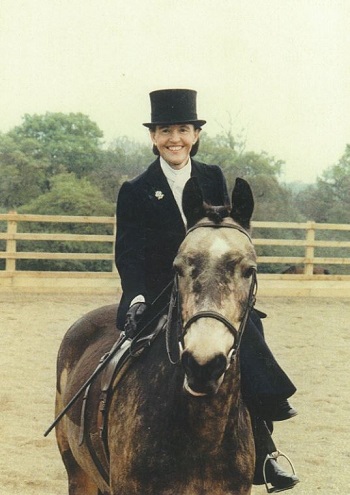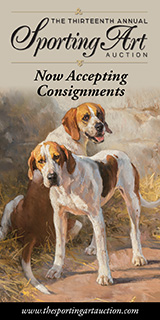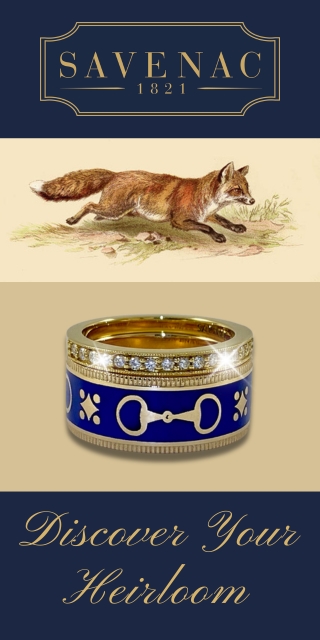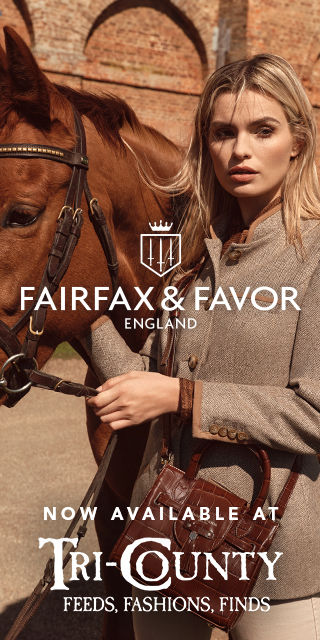Norm Fine’s Blog
Owney
The Border Terrier is a familiar breed to foxhunters, especially in the sheep farming districts of England and Scotland. They were bred on the English-Scottish Border to run with the foxhound packs. When the fox went to ground the Border Terrier would go in and bark so the men knew where to dig. But did you know that a Border Terrier named Owney was the first nationwide mascot of the United States Postal Service? Owney reigned for nine years, from 1887 to mid-1897, traveling over 140,000 miles throughout the forty-eight states and around the world.
Owney belonged to a clerk at the Albany post office who often brought the dog to work. He seemed to love the smell of mail bags and slept on them whenever he was there. The clerk eventually quit the post office, but knowing that the dog seemed happiest with the mail bags, he left him beind. The postal employees in Albany soon discovered that Owney didn’t want to leave the bags when they were loaded onto the trains, so he was allowed to travel with them.
Statistics Suggest England’s Hunting Act “Lies In Tatters”
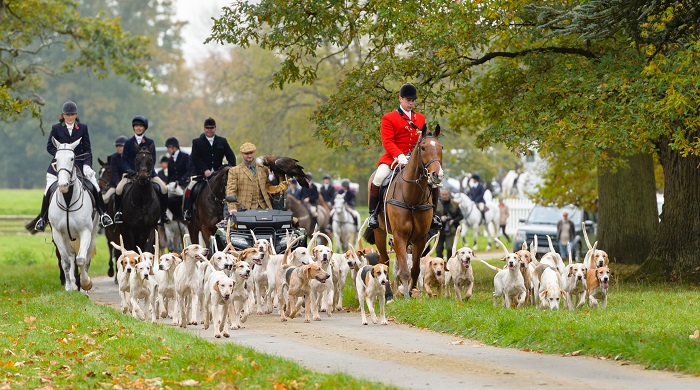 Falconers and huntsmen at British hunts attempt to hew to an unsatisfactory act of Parliament. / Nico Morgan photo
Falconers and huntsmen at British hunts attempt to hew to an unsatisfactory act of Parliament. / Nico Morgan photo
Statistics show that the Hunting Act of 2004 “lies in tatters” and should be re-examined by Government for being “too complex,” according to hunting advocates.
Less than half the cases prosecuted under the Hunting Act resulted in convictions in 2017, while the overall national conviction rate for all other matters in both magistrate’s court and Crown Court averaged between eighty and eighty-five percent. For prosecutions in 2018, the average conviction rate under the Hunting Act so far stands at forty percent. These conviction rates are the lowest since the Act came into force in 2005, falling from a high of just fifty-four percent in 2016.
Wearing Spurs Safely
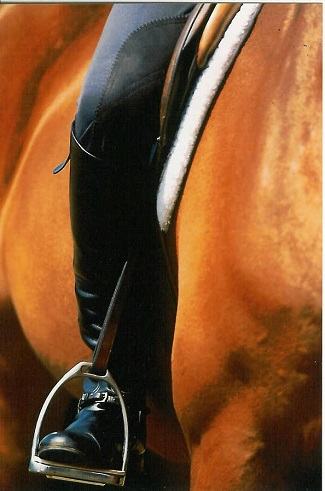 For safety, spur strap buckle is centered on the ankle with the free end of strap pointed to the outside.When you are wearing spurs, where does the buckle of your spur strap fall? As the result of the concerned suggestion of James Wofford, Olympic veteran and articulate three-day coach, Foxhunting Life has changed its recommendation for the proper way to wear spurs. (Hunting Attire, Tack, and Appointments under the Resources drop-down menu on our website).
For safety, spur strap buckle is centered on the ankle with the free end of strap pointed to the outside.When you are wearing spurs, where does the buckle of your spur strap fall? As the result of the concerned suggestion of James Wofford, Olympic veteran and articulate three-day coach, Foxhunting Life has changed its recommendation for the proper way to wear spurs. (Hunting Attire, Tack, and Appointments under the Resources drop-down menu on our website).
Wofford writes: “I (and others, George Morris, for one) want the buckle exactly centered on the rider’s ankle, thus the least likely to catch the branch of the stirrup in the event of a fall. For your consideration, I enclose photos of what I refer to as THE Lower Leg Position, meaning, in my opinion, correct in absolutely every aspect.”
Foxhunts Exploit New Technology
A typical county tax map overlayed on Google Maps. Street names and route numbers are shown and parcel numbers may also be displayed for owner identification.
Late in the Twentieth Century, advances in radio communications infiltrated the traditional sport of foxhunting, whether welcomed by all foxhunters or not. Today, hand-held radios and cell phones are as much a part of most hunt staffs’ kit as the horn and the whip.
More recently, online Tax maps and Google Maps, two Twenty-First Century high tech developments, are being used to assist Masters and staff in better organizing their hunting country. Epp Wilson, MFH and huntsman of the Belle Meade Hunt (GA) and his members take advantage of the technology to assist in landowner relations and improving the sport. First, let’s consider what the technology offers, then how Wilson uses it.
What’s In a Word That Begins With Rat?
As the informal autumn foxhunting season approaches, it’s time to examine our horses’ tack for neatness and safety—bridles, reins, billet straps, girth buckles, stirrup leathers—and, of course, our informal hunting attire called ratcatcher. Say what?
Some years ago, Carol Riggs, honorary whipper-in for the Red Mountain Foxhounds (NC), asked us, “Where did the term ‘ratcatcher’ come from?” For the answer we turned to our Panel of Experts.
Fitzwilliam Ex-Huntsman Convicted; Falconer Cleared
Fitzwilliam huntsman George Adams and hounds with falconer John Mease at the kennel meet, Milton Park, 2015 / James Barclay photoIn 2015, when James Barclay, ex-MFH took the photo above, hopes were still high for eventually reversing the Hunting Act of 2004 in Britain. Barclay wrote, “Hunting with the Fitzwilliam [UK] is always a treat, especially as my family and I spent twelve very happy seasons there. Although Peterborough is on the doorstep, the Park is beautifully laid out for hunting and many good days are enjoyed there. The kennels are situated on the eastern side of the Park and have a history going well back into the 1700s.
Knuckling Under to Political Correctness in Britain
Tesco, a multi-national British retailer of merchandise, has knuckled under to a small cadre of animal rights activists and removed a child’s party costume from their lineup of party wares. The item, feared to “encourage children to become animal abusers,” is a scarlet foxhunting tailcoat that sells for £10.41.
Do activists in Britain speak out against Frankenstein or Dracular costumes, as well? Or is it better to be a monster than a foxhunter? What about a military costumes? Will that "encourage children to become" warmongers? It's all so silly.
Badgering: A Fund Raiser for the Hunt
*Many hunts are continually on the prowl for a new fund raising scheme. Here’s a game from Britain that may raise funds, but if the members get to brawling don’t blame me.* The idea of using badges to raise hunt funds was the brain-child of our Hunt Chairman and this is the way he made it work. Each member was issued a badge at the start of the season. The badge cost £10.00 and the scheme was to last a year, until the start of the next season. According to the rules, all members had to buy a badge and show the badge at anytime, anywhere, when challenged by another Hunt Member, who also had to show their badge at the same time. Some minor points eased the situation for the ladies. Whereas a man had to produce his badge from a pocket, wallet, or coat, ladies could keep them anywhere on their person, as well as in their handbags or shopping bags. Fifty pence was the fine for non-possession, and £10.00 to replace a lost badge. The money was paid in to the hunt by the challenger. Many people were caught several times, when on occasion their memory failed them, haste got the better of them, or they were forced to change plans (or pubs) when discovering they had left their badge at home. A member could only be caught once in twenty-four hours despite several challenges. One luckless young lady came out one evening badgeless and was immediately caught. Then, as the celebrations went on until the wee small hours, she was successfully challenged again, it being another day. Some people were caught in bulk. The lady publican at the most popular pub in the Hunt Country waited patiently by the swimming pool then caught half a dozen members in their swimming shorts as they came out of the pool. She had her badge in her swim suit. Eleven members, in football clothing, were caught during the interval at an inter-hunt football match! Our terrier lady—my mother (known as Mrs Mac)—who did the terriers on Tuesdays, now takes up the story: “So there it was,” she said. “Fifty pence while crossing the stepping stones in a river; fifty pence when climbing out of the swimming pool; where next, I wondered. “Next was to be by the edge of a grave. There we stood during the solemn funeral service with no one moving, until I got a nudge from the Chairman. I was horrified and told him he should not ask me for my badge here, of all places. He said that the deceased would have approved as he was always worried about bringing money into the Hunt. With these words, he considered his thoughtless manners were excused. “If I was on the hill, the badge would be in the terrier van; if I wore my duffle coat, the badge would be in my oilskins (for oilskins were what we hunted in, it rained so much); if I was putting terriers back in the van, the badge would be on the dashboard in front. It seemed at times that if I wore shoes, the badge would be on the other foot. “On Tuesdays I felt comparatively safe as the Chairman of the Hunt ran the Mobile Library for the County and worked on Tuesdays. So one Tuesday, the huntsman had asked me to take the terriers to the end of a drain where the water came out in a waterfall ending in a deep pool. As I slithered down the bank to my horror I saw the Chairman, up to his waist in water, and blocking the drain with his broadness. “He asked me if I had my badge—not if I had the terriers, of course not. I asked him what on earth he was doing here on a Tuesday and he told me he was having a day off, ‘to catch you out,’ he said. “For me it had been an extremely expensive winter, and in the end I tried to avoid anyone associated with the Hunt. I dodged down side streets in the town and even changed queues in the bank. But even the bank cashier was on the Hunt Committee. Finally I decided I had had enough and went to stay with my daughter who lived on the other side of England. Here I would be safe, I thought, and my paranoia about badges gradually subsided. “I judged the Terrier Championships and terrier shows in the east of England and began to relax. However, one day when we were traveling to Bedford I saw a straw-laden truck overtake us. Now there was nothing unusual about this; straw is often carried from East Anglia to Wales. However, I saw the lorry had Brecon licence plates. Then I saw the driver pull in at the cafe ahead of us where we too had planned to stop. As the driver got out I recognised him. It was none other than our huntsman who drove for a haulage firm in the summer. “I told my daughter I knew him (as she was puzzled because he appeared to be waving something at me). I told her I knew just who he was. He’s our huntsman, he’s waving his badge at me, and I’ve left my badge in Wales! “When I returned home a polite request from me to a farmer to produce his badge (as he sweated away cutting a thorn hedge) produced a very disgruntled reply. “I’m fed up with this b….y badge business,” he yelled, but great supporter that he is, I knew he’d be the first to volunteer if we started some other fiendish scheme next winter.” My mother finished by saying that ‘badgemail’ rather than ‘blackmail’ certainly paid off. The scheme produced a lot of good-natured camaraderie and jollity. It brought people together—even the shyest of people. They could always ask a hunt member they did not know well to show their badge (that is, if they ...
Read More
Thank You for Donating Your Land; Now Get Off It
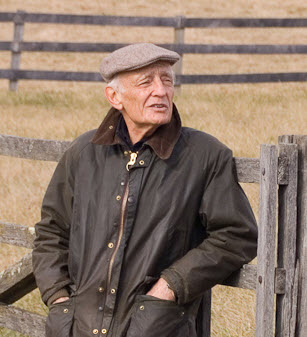 Karen L. Myers photoAnti-hunting lobbyists in England are pressuring the National Trust to curtail even drag hunting on National Trust lands. The National Trust in turn has recommended that their members vote to do just that. I feel like I've walked through Alice’s looking glass into an alternate world. Where do these people think this land came from, anyway?
Karen L. Myers photoAnti-hunting lobbyists in England are pressuring the National Trust to curtail even drag hunting on National Trust lands. The National Trust in turn has recommended that their members vote to do just that. I feel like I've walked through Alice’s looking glass into an alternate world. Where do these people think this land came from, anyway?
Historically, the National Trust was the beneficiary of English country houses which still make up the largest part of its holdings. Many estates even came with requests that foxhunting may continue there. Now, foxhunters and drag hunters are to be excluded from the very land that their forebears placed into the Trust generations ago. Are fairness and equity totally inoperable concepts in today’s Britain?
Fox Hunting or Foxhunting?
 Karen L. Myers photoI have been asked by writers, publishers, and even by just curious individuals over the years, which written form is correct—fox hunting (two words) or foxhunting (one word)?
Karen L. Myers photoI have been asked by writers, publishers, and even by just curious individuals over the years, which written form is correct—fox hunting (two words) or foxhunting (one word)?
From what I have seen, the style of the term most commonly used by people who do not hunt is fox hunting (two words). Supporting this choice is a highly respected reference book for writers and publishers, the Chicago Manual of Style, that recommends two separate words. To be sure, there are also some highly respected experts on hunting who also use the two-word version. So, you can’t go wrong using fox hunting. Nevertheless, I use the one-word form, foxhunting, in all my articles, books, and published material. Here’s why.


